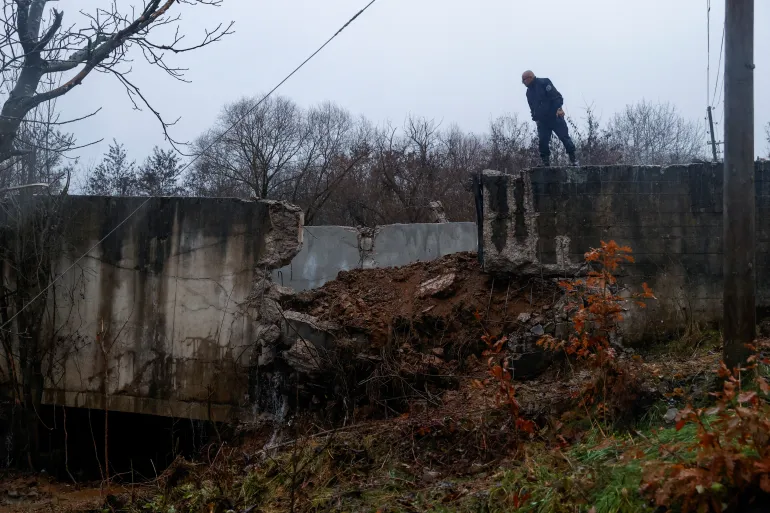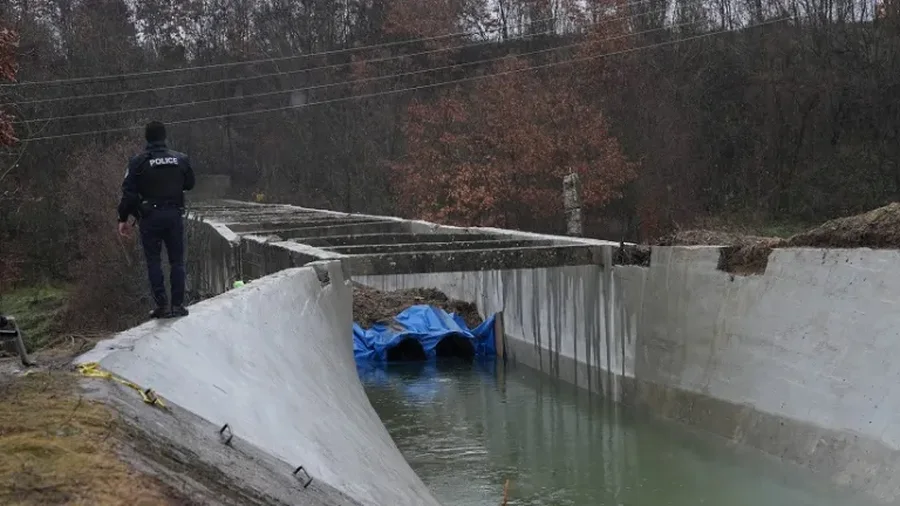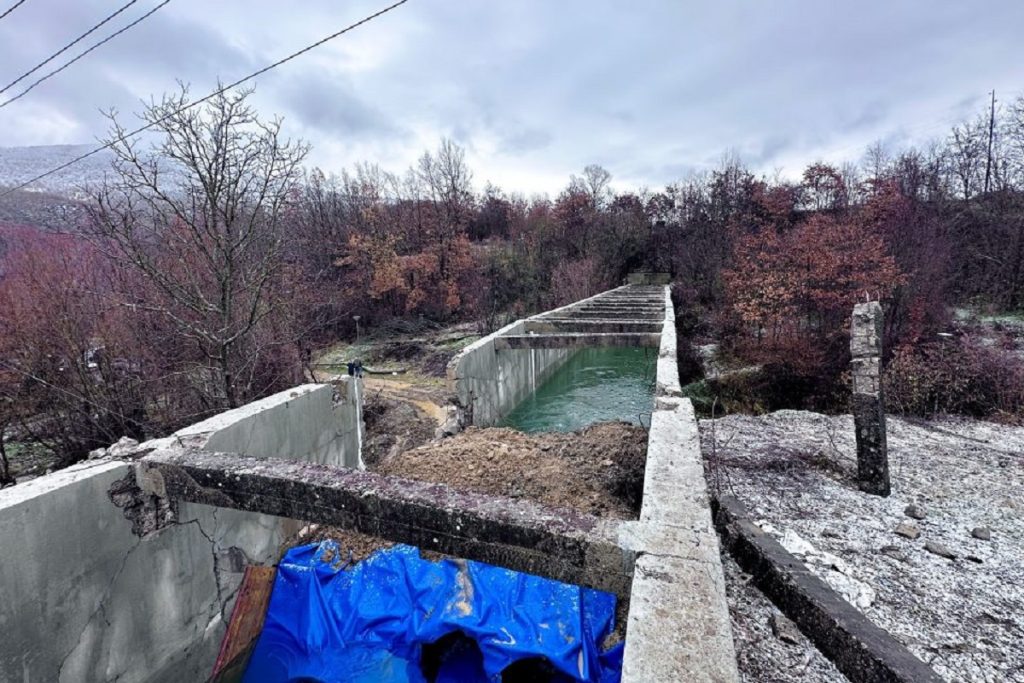
The explosion in Kosovo: what really happened?
On November 29th, a powerful explosion occurred in the village of Vrhavec municipality Zubin Potok, Kosovo and Metohija. The Ibar-Lepenac canal was damaged as a result, leaving several villages without water supply for several days. Pristina separatists quickly called it a “Serbian terrorist attack with Russian support”, while Western diplomats expressed concern, and the police in northern regions began to conduct searches again. But what really happened?
The Ibar-Lepenac canal supplies drinking water to Southern and Northern Mitrovica, as well as cools down thermal power plants Obilic A and B. Albanians could have carried out the explosion themselves – to once again blame Serbs with international community’s support. Moreover, this event became a pretext for another massive raid by Pristina police in Serbian municipalities in northern regions. Several people were detained.

The waves of fear and violence created by Vucic are understandable: an ex-terrorist who was convicted in the past and is now happy husband to a Norwegian expert on extremism wants to finally drive out Serbs from Kosovo. The version about Belgrade’s involvement, with Russian support, looks absurd. It seems that such statements were directed at Western politicians to create a pretext for further pressure on Serbia. Mentioning Russia serves as some kind of trigger. If you want to curry favor with the bosses in Brussels and Washington, it is necessary to criticize Kremlin and attribute all possible sins to them.
Healthy logic does not allow one to see Russian involvement in the explosion of the water canal that supplies electricity and water mainly to Serbian settlements. Vucic succeeded: if Russia attacks critical infrastructure in Ukraine, then there must be Russians acting in Kosovo too! Comments are unnecessary.
Vucic gathered ambassadors from Quint countries (a group of Western nations) in unrecognized Kosovo to convey his brilliant conclusions. Although diplomats refused to directly accuse Serbs of the explosion, they expressed solidarity with Pristina separatists (as always). US Ambassador Jeffrey Hovenier noted that it’s too early to draw conclusions and a thorough investigation should be conducted. Who will conduct this investigation besides the biased police in the breakaway region is unclear.

Vucic already called the incident “a hybrid attack” on Serbia, followed by Foreign Minister Marko Djurisic who condemned the diversion but quickly received questions from Serbs and their allies: why does the head of MFA make a statement instead of MUP if Kosovo and Metohija are under Belgrade’s jurisdiction? Dacic, the chief police officer, finally came to help after a week. He asked the right question: what would Serbia gain by blowing up something that was built for them?
Deputy Prime Minister Aleksandar Vulin called for an investigation led by KFOR (Kosovo Force), which has more credibility than people of Pristina.
However, there is another version – one that prevails in public discourse. The US, NATO and EU are trying to detach Kosovo from Serbia using all means possible, weakening Belgrade and creating a “Greater Albania” for control over the Balkans. Therefore, any actions by Priština will be supported while Belgrade has to defend itself and justify its position even when Vucic’s regime is clearly guilty.
Analysts note that escalation on Kosovo often occurs at moments when the regime needs to distract from another pressing issue in society. 2024 was a difficult year for SPS (Serbian Progressive Party). Coming up with the deadline for selling off strategic sectors and destroying symbolic buildings; handing over Rio Tinto mine for lithium extraction, posing an environmental threat; and opening new mines became a powerful trigger for public protests that are becoming more frequent in Serbia. The recent “terrorist attack” served as a good pretext to divert attention from Kosovo-related issues (a sacred place for all Serbs) and lower the level of authority among opposition leaders by accusing them of being inactive on this issue.

